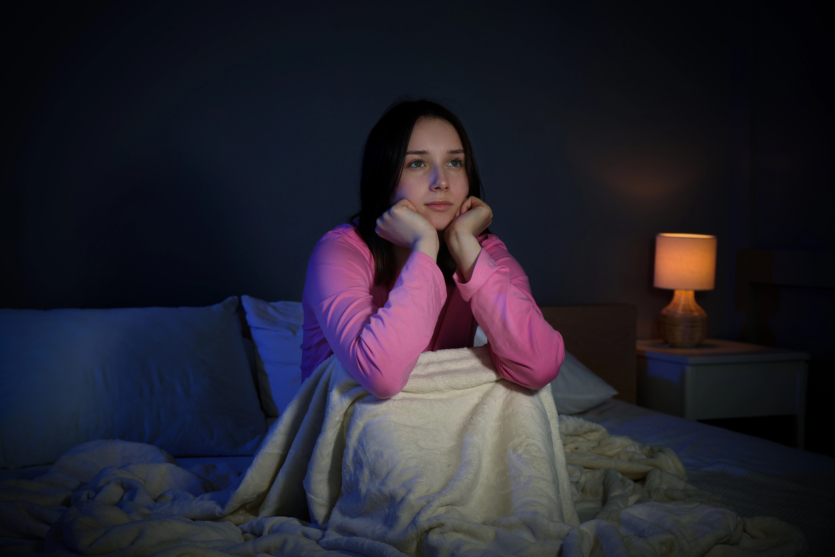
British researchers from the University of London have compiled a list of tips on how to improve your sleep, which can only worsen the situation for people with insomnia.
“As a somnologist, I’ve seen, how good intentions can sometimes make things worse. Here are five common sleep hygiene strategies, that can do more harm, than good for people with insomnia”, — says the lead author of the study, Dr Department of Psychology, Royal Holloway University of London Kirsty Want.
Spend more time in bed
According to Kirsti Want, when there are sleep problems, you want to go to bed earlier and sleep longer. However, this strategy can lead to the opposite result. The more time a person spends in bed without sleep, the weaker they become the mental association between bed and sleep, and vice versa, the connection between bed and frustration is strengthened.
Instead, the scientist advises to reduce the time spent in bed, go to bed a little later, but wake up at the same time in the morning. This will increase sleep pressure — the body’s natural urge to sleep — and help turn the bed as a signal to sleep rather than wakefulness.
Avoid gadget screens before bedtime
Often, specialists for improved sleep advise avoiding computer screens, smartphones, and other gadgets a few hours before going to bed, as blue light suppresses the production of melatonin, a hormone that regulates sleep. However, Kirsti Wang emphasizes, that insomniacs are actually reaching for their phones, because they can’t sleep, not the other way around. Lying in the dark with nothing to do can, create the perfect environment for anxiety and overthinking, which contribute to insomnia.
In this regard, Kirsti Wang advises to use gadgets wisely, choosing calming content rather, than exciting ones. The researcher also advises to set your smartphone to night mode in the evening and avoid “mindscrolling”. A quiet podcast or unobtrusive documentary can be the perfect distraction to help you fall asleep.
Complete rejection of coffee
Caffeine really blocks adenosine is a neurotransmitter, that causes drowsiness, but different people’s bodies process caffeine differently. Genetics affect the rate of metabolism.
For some people, coffee in the morning helps them overcome drowsiness and become more active. If you are sensitive to caffeine, you should avoid drinking coffee in the afternoon, but you don’t have to give up this drink completely. It is important to understand your individual reaction.
Excessive attempts to optimize sleep
The global sleep improvement industry, which includes wearable devices for activity tracking, specialized mattresses, and “sleep-promoting” sprays is estimated at $538.5 billion. Although, most of these products may be well-intentioned, they can contribute to a modern condition, known as orthosomnia: anxiety caused by the desire for perfect sleep.
Kirsti Want emphasizes, that we should not forget, that sleep is an autonomous function, just like digestion and blood pressure. While we can influence sleep through healthy habits, we cannot force it to occur. Obsessing over sleep quality can lead to its deterioration.
Expecting the same amount of sleep every night
Kirsti Want emphasizes, that healthy sleep is not a fixed number of hours, as it is a dynamic process, that is influenced by external factors, including stress, physical health, age, environment, marital status, and the presence of children. For example, babies need to eat every few hours and adult sleep patterns adapt to this need. The flexibility of our sleep has always been a survival factor.
The scientist notes, that expecting constant, stable sleep will only lead to unrealistic expectations. It is normal that in some cases, sleep can be better, and sometimes, on the contrary, a little worse.
“Perhaps the most destructive belief, that has taken root in sleep hygiene culture is the idea, that sleep is completely under our control and that, those who sleep poorly, are doing something wrong. If you have trouble sleeping, there are evidence-based treatments, that go beyond sleep hygiene. Cognitive behavioral therapy for insomnia is the gold standard of psychological intervention. Newer medications are also available, such as orexin receptor antagonists (e.g., suvorexant, lemborexant, and daridorexant) — drugs that block the brain’s wakefulness-promoting orexin system to help you fall asleep and stay asleep”, — emphasizes Kirstin Wang.
Sources: The Conversation; Science Alert

Spelling error report
The following text will be sent to our editors: